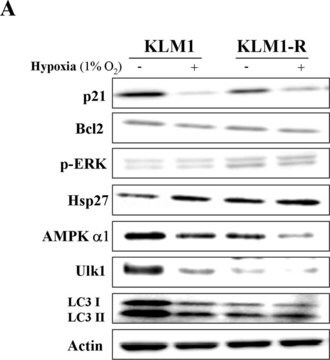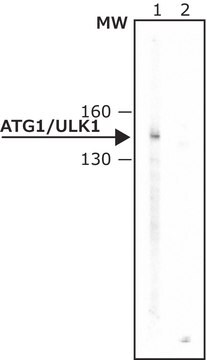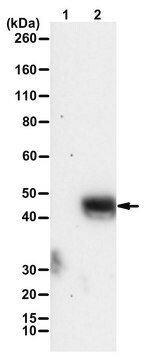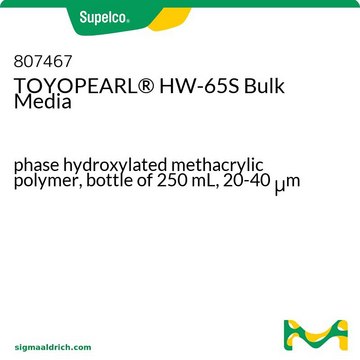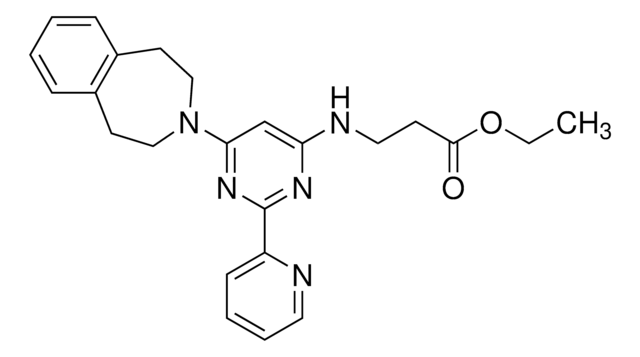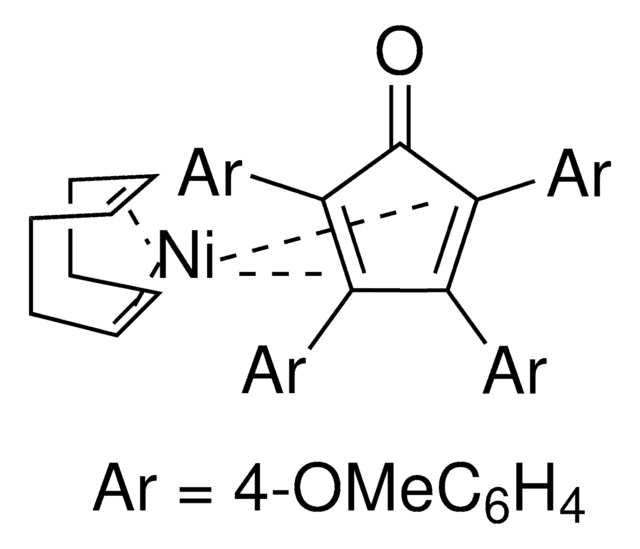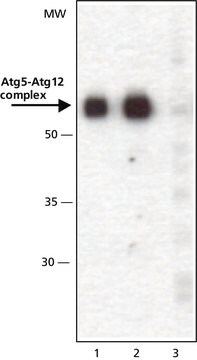ABC213
Anti-phospho ULK1 Antibody (Ser777)
from rabbit, purified by affinity chromatography
Synonyme(s) :
Serine/threonine-protein kinase ULK1, Serine/threonine-protein kinase Unc51.1, Unc-51-like kinase 1
About This Item
Produits recommandés
Source biologique
rabbit
Niveau de qualité
Forme d'anticorps
affinity isolated antibody
Type de produit anticorps
primary antibodies
Clone
polyclonal
Produit purifié par
affinity chromatography
Espèces réactives
human
Technique(s)
inhibition assay: suitable (peptide)
western blot: suitable
Numéro d'accès NCBI
Numéro d'accès UniProt
Conditions d'expédition
wet ice
Modification post-traductionnelle de la cible
phosphorylation (pSer777)
Description générale
Immunogène
Application
Western Blotting/Peptide Inhibition Analysis: 2 µg/mL of this antibody detected phospho ULK1 (Ser777) in 10 µg of A431 cell lysate.
Qualité
Western Blotting Analysis: 2 µg/mL of this antibody detected phospho ULK1 (Ser777) in 10 µg of A431 cell lysate.
Description de la cible
Autres remarques
Vous ne trouvez pas le bon produit ?
Essayez notre Outil de sélection de produits.
Code de la classe de stockage
12 - Non Combustible Liquids
Classe de danger pour l'eau (WGK)
WGK 1
Point d'éclair (°F)
Not applicable
Point d'éclair (°C)
Not applicable
Certificats d'analyse (COA)
Recherchez un Certificats d'analyse (COA) en saisissant le numéro de lot du produit. Les numéros de lot figurent sur l'étiquette du produit après les mots "Lot" ou "Batch".
Déjà en possession de ce produit ?
Retrouvez la documentation relative aux produits que vous avez récemment achetés dans la Bibliothèque de documents.
Articles
Autophagy is a highly regulated process that is involved in cell growth, development, and death. In autophagy cells destroy their own cytoplasmic components in a very systematic manner and recycle them.
Notre équipe de scientifiques dispose d'une expérience dans tous les secteurs de la recherche, notamment en sciences de la vie, science des matériaux, synthèse chimique, chromatographie, analyse et dans de nombreux autres domaines..
Contacter notre Service technique